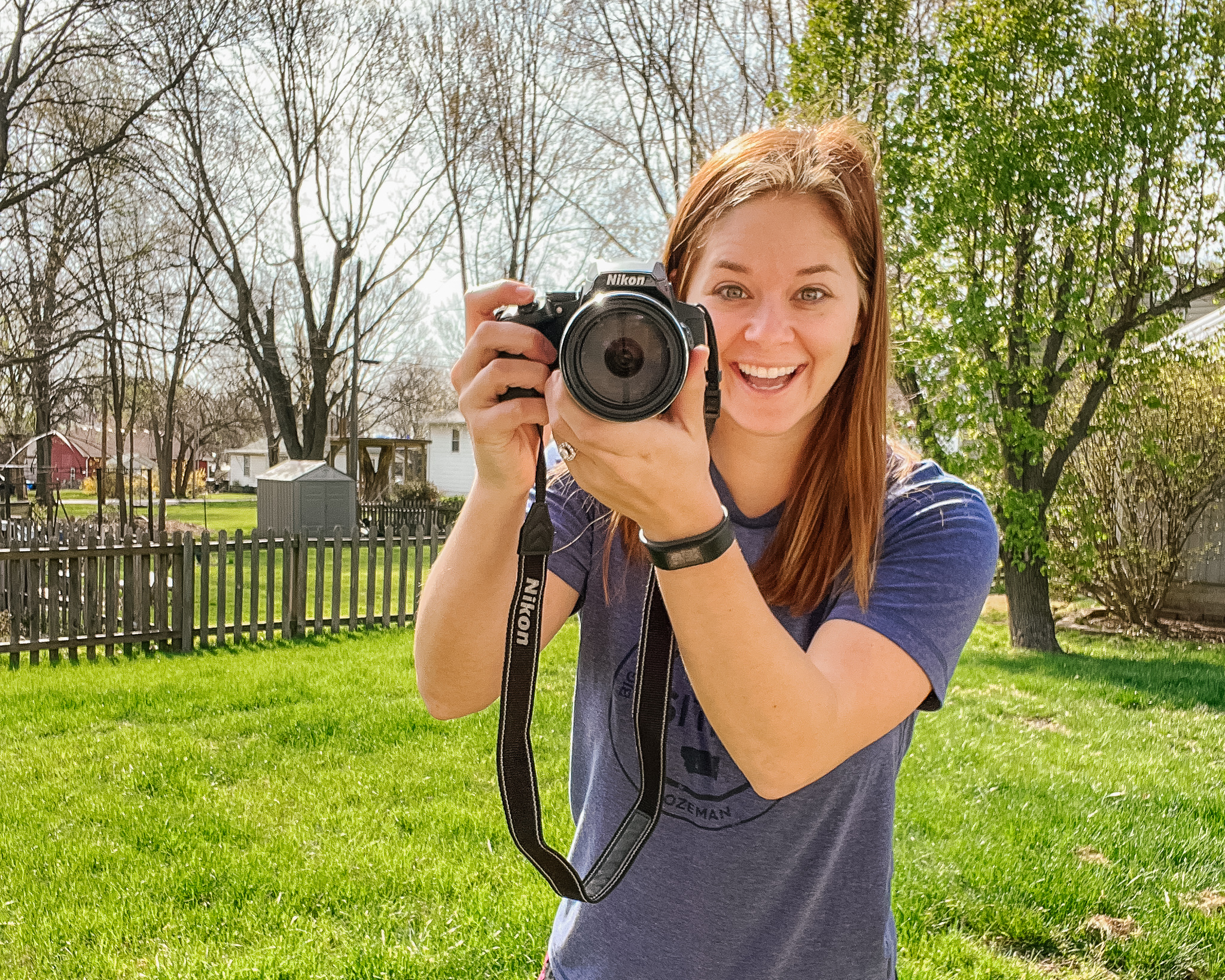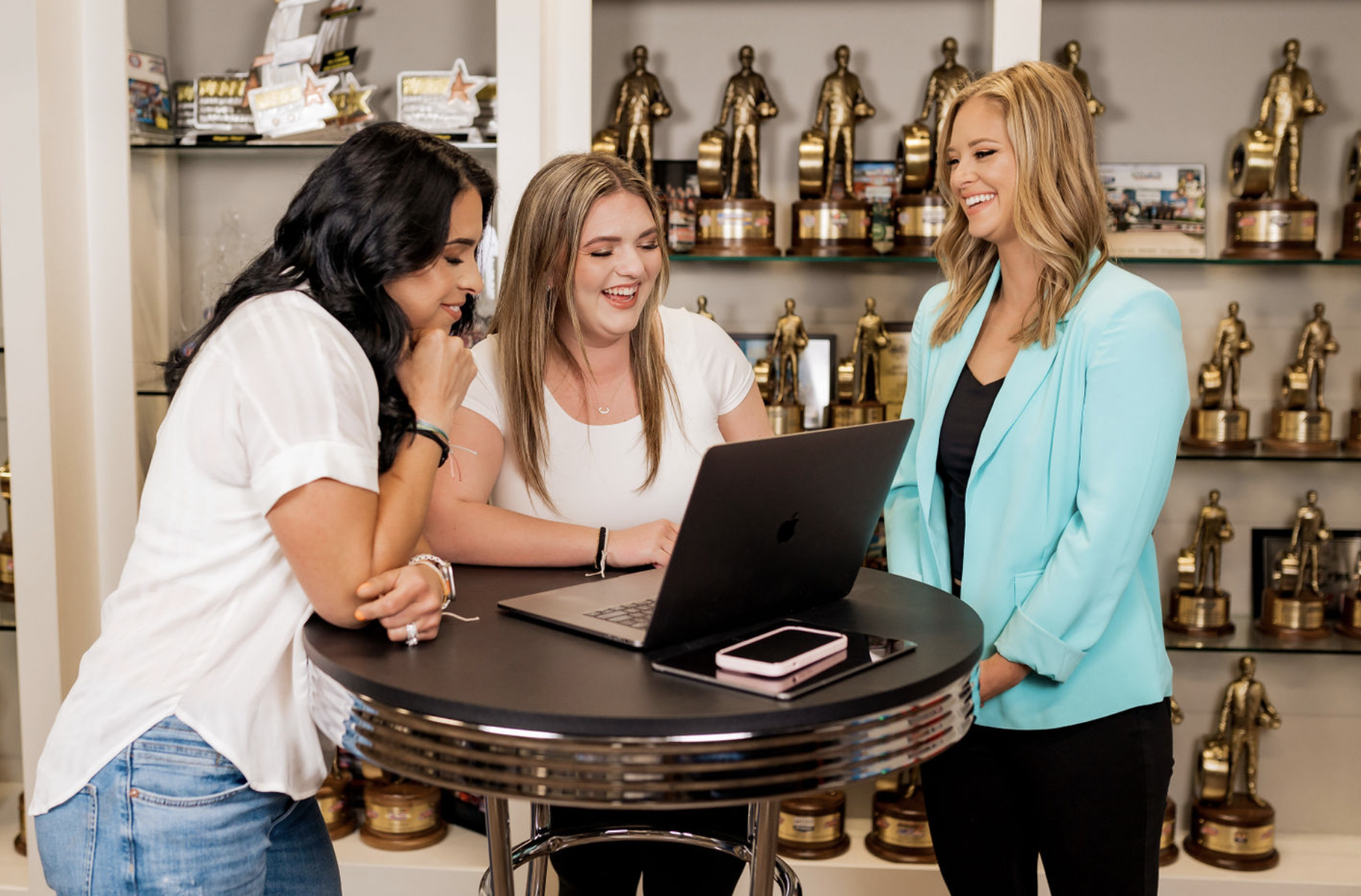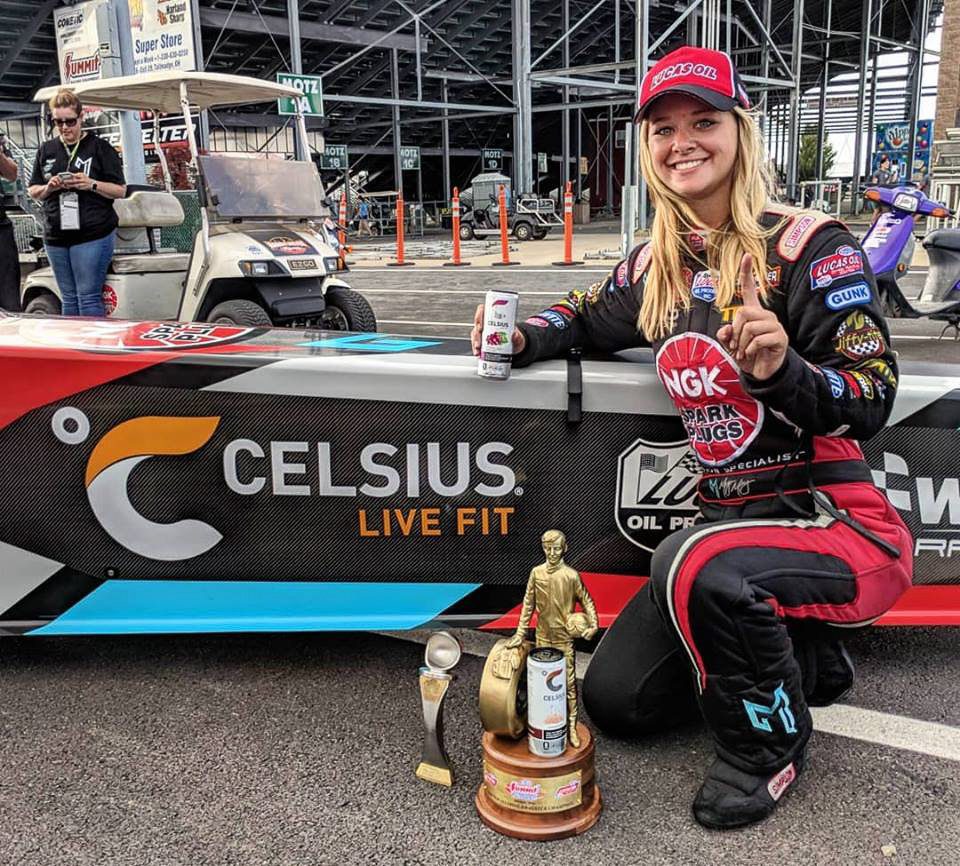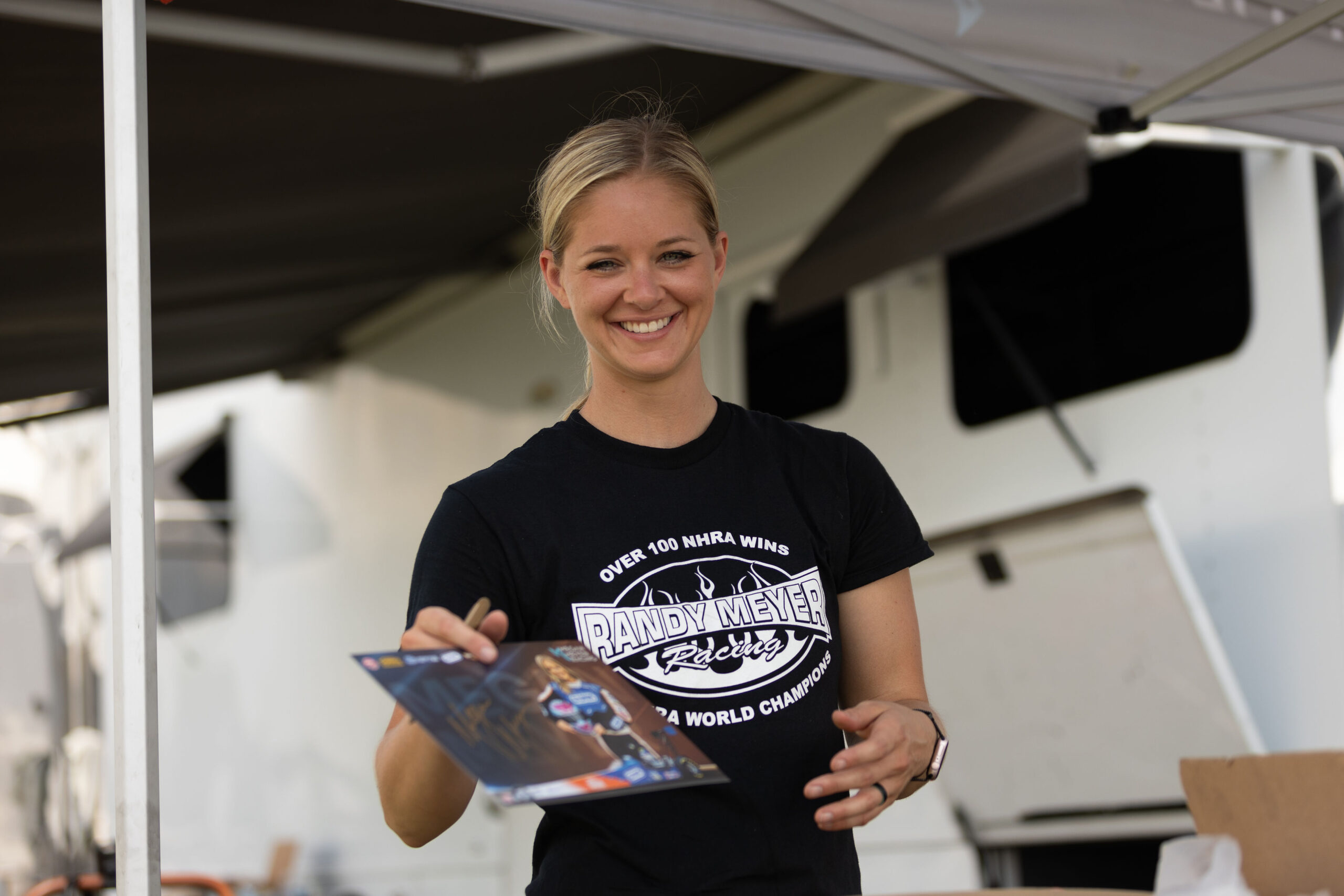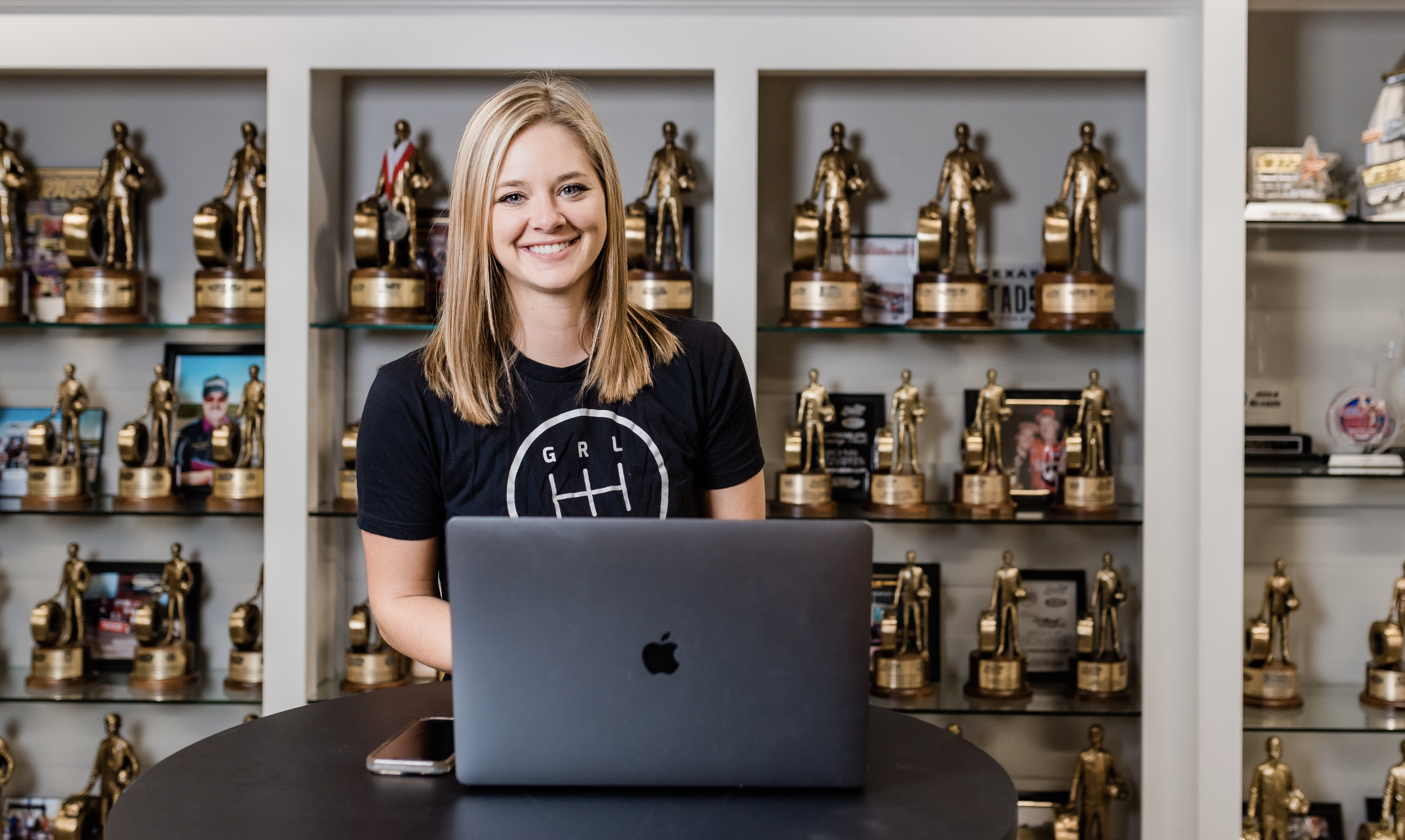FOLLOW ME & sHARE
I had the joy of interviewing one of Drag Illustrated’s best photographers—and someone I work with quite often—Rick Belden. We talked about all the ins and outs of track photography and what images you can and cannot use. If you have questions about:
- Can I use an image someone took of me?
- Do I get royalties on images of me or my car?
- What’s the difference between all the photographers at the track?
This is the blog post for you!
To keep reading about how to become a track photographer and grow your portfolio, or how a racer should pick which photographer to work with, read part 2 here.

Megan Meyer: When someone takes a photograph, who owns it and what can I do with it?
Rick Belden: There’s a huge misunderstanding between racers and photographers. I was at ZMax and I posted a couple, and in my post you’ll always see “photos taken for Drag Illustrated” so that they know it’s a media shot, and I’ll put their logo on there. I had two racers reach out to me and I posted a few shots like I do, and they asked “how can I get that photo? Am I buying it from you?” and I’m like, “I can’t sell it to you, it’s media.”
They ask, “well, can I do…” and it’s like no, you don’t understand, it’s for the media, it’s a media shot. I can’t even sell it even if I wanted to. Drag Illustrated can’t sell it either, even if we didn’t get compensation for it, because it’s media use.
We’re so used to, in this day and age, we take a photo and think “Oh, I got a photo” and you’ll post it on social media, but you need a certain right to use images and people get really confused on who owns the images and what they can do with the images. Again, I see it all the time, from all racers at different levels.
There’s something called the DMCA—Digital Millennium Copyright Act of 1998. So in the old days, when I would take a picture of you and it was physical. You would have to buy the photo and the copyright if you made additional copies of it, you would need that copyright release. When digital really started coming out, people looked at it like, “Oh it’s digital, it’s free!” Which is just not it. Very similar to music; you can’t take someone’s music and use it for your own thing without a license to do it. And it comes down to this: Whoever snaps the picture owns the copyright to the pictures.
If I take a photo of you and I say, “Megan, you can have the photo,” it’s implied that you have a personal copyright use, which means that you can use it personally. Now this is really important for racers—you have Megan Meyer the person and you have Megan Meyer the racer. Megan Meyer the person can post it on social media and all that, a personal copyright use implies those kinds of personal uses.
Now, the minute you put a logo on there, you have changed the use of the image from personal to commercial—which is not okay. If I don’t give you written commercial copyright—not implied, has to be written out—if I haven’t done that, you cannot use it for that purpose.
Now, I’m saying that because we’ve got all kinds of levels in racing with a massive number of people, most people don’t really understand this. You can get in a lot of trouble with a photographer, and this is what happens, if I’m unscrupulous, I’ll say “Megan, go ahead and use my images.” And then you give them to all the companies and they start making ads and posters, then I can come back and say, “I never gave you permission to do that.” And then I can go after every single one.
Now, would a photographer with good, moral values do that? Probably not, they’ll probably say something like, “Hey Megan, that wasn’t really the intent, we should be licensing these.” But if we’re talking legally, then that’s all fair game. I’ve seen racers take images of something off of social media for their own social media and just because they already used it in a personal fashion doesn’t mean they can use it commercially, to sell it, to put it on T-Shirts, or to put it on posters. That’s probably the biggest misunderstanding in the industry of what you can actually do with images.
MM: If they’re using the image for hero cards or for their website, where they’re not selling it, it’s not technically “commercial” but in a way it’s still a form of advertising, what about that?
R: If we’re going by the law, that would be considered commercial. When you put that image on a hero card, per se, you’re not promoting the person, you’re promoting the racer. And this is what racers need to understand: You have your public image and you have your personal image. If you’re using any image and connecting it to other sponsors or saying “hey, come see Megan in the pit later” that is unquestionably commercial use.
MM: Okay so is that release something that the photographer needs to write up and provide, or does the racer or the company that’s using that image need to write up the release?
R: Good question. Many photographers don’t even know the difference or know that they need to have a commercial release ready to go. The photographer is the one who has to supply the release, because the release dictates who can use the photo, for what, and for how long. Maybe you can only use it for a year before you need to sign a new release with that photographer.
Even if I were to send it in an email and write in the email “use this for whatever” that’s still not considered a commercial release, you still can’t use it for a commercial. The release will dictate how an image will be used commercially, things like print, hero cards, publications, whatever.
Here’s the flip side: If I take a photo of you, I can sell it, I can make prints and sell them at the track and you can’t do anything because I own the image. You don’t have to sign a release for your image to be used. Now if I take my logo and put it on your image I’ve changed the right by saying that you’re advertising for my company. And I cannot do that as a photographer, now I’m in trouble. So what I also can’t do is go around your back and go to NGK and give them pictures of you and take money for that. If they put their logo on your image without your permission, I as the photographer am now in trouble.
MM: So as a racer, when I’m at the track and especially with NHRA, there’s dozens of photographers there, in the staging lanes and on the starting line. And they can get really obnoxious and up in your face, I’m trying to get the helmet on, trying to get in the car, get in the zone and ready for the race, and they’re shoving a camera down into the roll cage trying to get a cool shot. Do I have a right if they then sell that image, is that something I’m supposed to be getting compensation from?
R: Great question. For all intents and purposes, NHRA is the most regulated, the most rules, you have to be legit media to get media credentials. Any photo that I take with my NHRA credentials that those credentials got me into, like the staging lane, during operating hours, I’m now restricted on what I can do with that.
So in that scenario, those images are for me to use. Can the media show them? Sure, but the racer can’t do anything about them or with them. If I’m in there in certain spots where only media can get me, then I can’t sell the images, I can’t give them to you, I can’t do anything with them other than give them to my publication.
As you know, I work for Drag Illustrated, and they’re restricted on what we can do with the images. Ultimately, when I am contracted by Drag Illustrated to photograph an event, because Drag Illustrated got me the credentials, they own those images. So when I said that if I take a photo of you and I own it, that’s still true—unless, I’m on site with media credentials for an organization, then the organization has the rights to those images. They’re used for the media.
So when you’re there at the track as a racer, one of the things you’re consenting to is the media, as a public figure. As a racer, you don’t have a lot of rights there.
Now there’s another side to this coin. Let’s talk Auto Imagery, for example. They buy the rights to be able to shoot those events for NHRA or for racers. They’ve basically purchased a license from NHRA to take those photos. The racers still don’t have access to those photos or any say, the copyright still belongs to the person who took the photo. That’s the rules, that’s the law.
So we’ve got the media, then we’ve got people who have paid for the right to take photos, and there’s another group: A photographer that works for the race team. There are some teams who hire a professional photographer, and that works pretty similarly to how people who pay for the rights to take photos. You can photograph those events for a race team and you can use those, that’s totally fine. You see that pretty often, but they’re using iPhones or video than air photography.
Those are the three kinds of people who will be there: The media who can’t give you the images, the paid photographers who can sell you the images, and then your own track photographer that works directly for your team.
MM: Let’s say that I see a picture of me putting my helmet on in the staging lanes getting ready, or its me in the car on the track, and the photographer is selling those images. Am I allowed to get a portion of that because I’m the model in those pictures? I think racers feel like they should get royalties from their images.
RB: Technically speaking, the law says no. You have no rights to the images. You’re a public figure and you’re out in an area where that person is legally allowed to shoot. Anything I can see with my eyes, I can take a photo of. I can take those photos and do anything I want with them, and you can’t do anything about it.
I know that’s creepy and people wouldn’t really do that, but if you understand that, then you understand that the person who owns the copyright can really do whatever they want. Again, there are exceptions, like me putting logos on it, me turning around and reselling it to a third party, or put words in your mouth.
Recently with a racer that’s pretty well known, I took some photos of her in my studio, and I gave them to her and we put them online. Someone downloaded them, made 8x10s, and is selling them on eBay. And that’s totally wrong, they’ve stolen the image and they’re monetizing as not the photographer and not the model. We sent a legal cease and desist, and then about 6 months later we had a different person do exactly the same thing on eBay again. The were using images from social media.
She can share those images, sure, but she can’t download and monetize them. But when you’re on social media, that gives you the right to share those images but I cannot alter the image. You can’t add a filter to an image I took and then upload it, that’s altering the image. You have now broken the law. It’s like me making a recording of music and then you adding cymbals or something in it, you can’t do that to music. Same thing about photography. It’s harder to think about because we think about photography as about whoever shares it, but there are pretty strict rules. It’s art.
So to answer your question if you have rights or commission to an image of you that someone else is selling, the answer is no. If I’m smart as a photographer, though, I’d want to bring you in if I have a great photo of you! I’d want to make posters and sell it and split profits with you because I probably want your logo on there to prove that we’re in a partnership.
